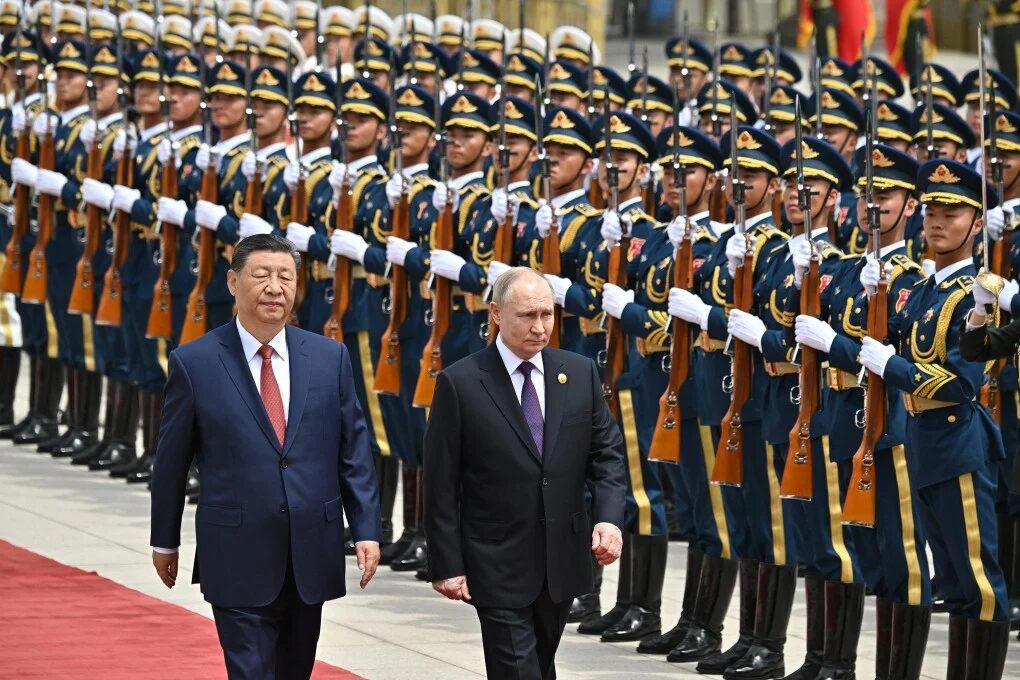Xi Jinping’s Moscow Visit Strengthens China-Russia Alliance Amid Global Tensions
Chinese President Xi Jinping arrived in Moscow on May 7 for a pivotal four-day visit, marking a significant moment in the evolving China-Russia relationship. His presence at the 80th anniversary Victory Day parade on May 9, alongside Russian President Vladimir Putin, symbolizes a deepening strategic partnership amid rising geopolitical tensions and the ongoing conflict in Ukraine. This visit underscores the two nations’ shared resolve to challenge Western dominance and reshape the global order.

Victory Day’s Historical Resonance
Victory Day in Russia commemorates the Soviet Union’s triumph over Nazi Germany in World War II, a defining moment that continues to shape Russian national identity. While the parade on Red Square remains a military spectacle, it also serves as a potent link between historic sacrifices and modern aspirations. This year’s 80th anniversary event gains added weight amid Russia’s Ukraine campaign and international isolation.
Economic Lifelines and Military Ties
Xi’s attendance as the “main guest” highlights the close camaraderie between Beijing and Moscow. Before his arrival, Xi published an article in Russian media emphasizing “eternal friendship” forged through shared WWII sacrifices. He also vowed to resist “endeavors that might interfere with” their partnership-a clear rebuke of Western containment efforts.
As the United States and its allies impose sanctions on Russia and escalate trade tensions with China, both nations increasingly lean on each other. For instance, China now serves as Russia’s largest trading partner, importing oil and gas to cushion Western sanctions. Meanwhile, military collaboration intensifies, with joint exercises expanding in frequency and scope since 2022.

Negotiations and Strategic Agreements
Moscow’s recent diplomatic outreach to Washington and defense pact with North Korea reveal expanding options that could challenge Beijing’s influence. Consequently, China faces a delicate balancing act: maintaining its Russian partnership while courting European ties without endorsing Moscow’s aggression.
During the visit, Xi and Putin aim to enhance their “comprehensive partnership” through anticipated agreements on energy, trade, and technology. These deals will not only bolster China’s economic support but also present a united front against perceived U.S. “hegemonism.”
Ukraine Conflict’s Shadow
Xi’s parade attendance sends a clear message of Sino-Russian alignment on global order. However, Ukraine’s war looms over celebrations. Putin proposed a three-day Victory Day ceasefire, but Zelenskyy demands a longer truce, exposing fragile peace efforts. Furthermore, Zelenskyy raised safety concerns for foreign dignitaries in Moscow, emphasizing the conflict’s volatility.
China’s role as a potential mediator remains under scrutiny. While Beijing advocates for stability, its continued support for Russia economically and technologically fuels Western skepticism. Critics argue China’s peace initiatives primarily aim to ease European pressure rather than resolve the conflict.
As Xi’s visit concludes, the geopolitical implications grow clearer. The China-Russia partnership transcends bilateral ties, representing a strategic shift in international relations. Their Victory Day solidarity projects strength as global institutions face unprecedented strain.
In an era of shifting alliances, Xi’s Moscow visit underscores evolving power dynamics. For both nations, this alliance acts as both a defensive shield and an offensive platform. Ultimately, its impact on Ukraine and global stability will test diplomatic strategies worldwide.

